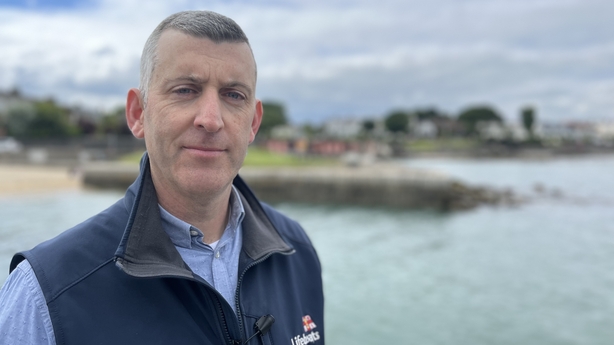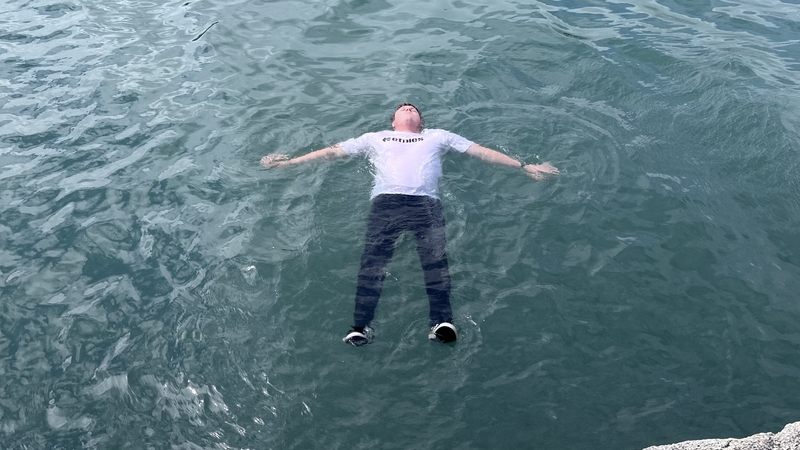The RNLI has said that it is expecting "an incredibly busy" summer holiday season ahead and has advised people what to do if they unexpectedly fall into water and get into trouble.
According to latest figures from Water Safety Ireland, over half of people who drowned over the last five years had not intended to enter the water.
As the warmer weather tempts people to the water over the next few weeks, the advice today is about how to react if you get into trouble.
We need your consent to load this rte-player contentWe use rte-player to manage extra content that can set cookies on your device and collect data about your activity. Please review their details and accept them to load the content.Manage Preferences
The RNLI is calling it its 'FLOAT to Live' campaign, which the charity advises could prove lifesaving.
They say if you find yourself in difficulty in the water:
- Tilt your head back with ears submerged.
- Relax and try to control your breathing.
- Use your hands to help you stay afloat.
- It is okay if your legs sink, we all float differently, the RNLI said.
With the help of a volunteer, the RNLI gave a demonstration with Killian O'Kelly, Water Safety Education Manager, explaining the rationale.
"You can quickly become overwhelmed even if you know how to swim," he said.
"Our advice is to float and to fight your instinct to swim and fight your instinct to panic.
"So, when you float, and go your back, and get your ears in the water and as you go into that starfish position where you spread your legs and arms, if you can float well enough, your breathing will get under control.
"Once you get your breathing under control and can deal with the environment around you, then if you're able to swim, you'll be able to swim back the couple of metres to whatever you have fallen from or you can keep floating and put up one hand and shout for help," Mr O'Kelly said.

Figures from Water Safety Ireland show an average of ten drownings every month over five years, with men accounting for 70% of these tragedies.
Additionally, 57% of accidental drownings involved people who were engaged in activities where they did not expect to enter the water.
"They were doing some land activity and accidentally fell into the water. So that can be as simple as walking along the shore, angling, even driving or cycling but they had not intended to go into the water that day," said Mr O'Kelly.
"First of all they've entered unexpectedly, and the water in Ireland is quite cold, defined as under 15C, so there's a really high risk of when you go into the cold water of suffering from cold water shock and that can overwhelm someone even if they know how to swim."
The RNLi said that it is expecting a busy summer holiday seas and said it hopes people heed its FLOAT to Live advice.





